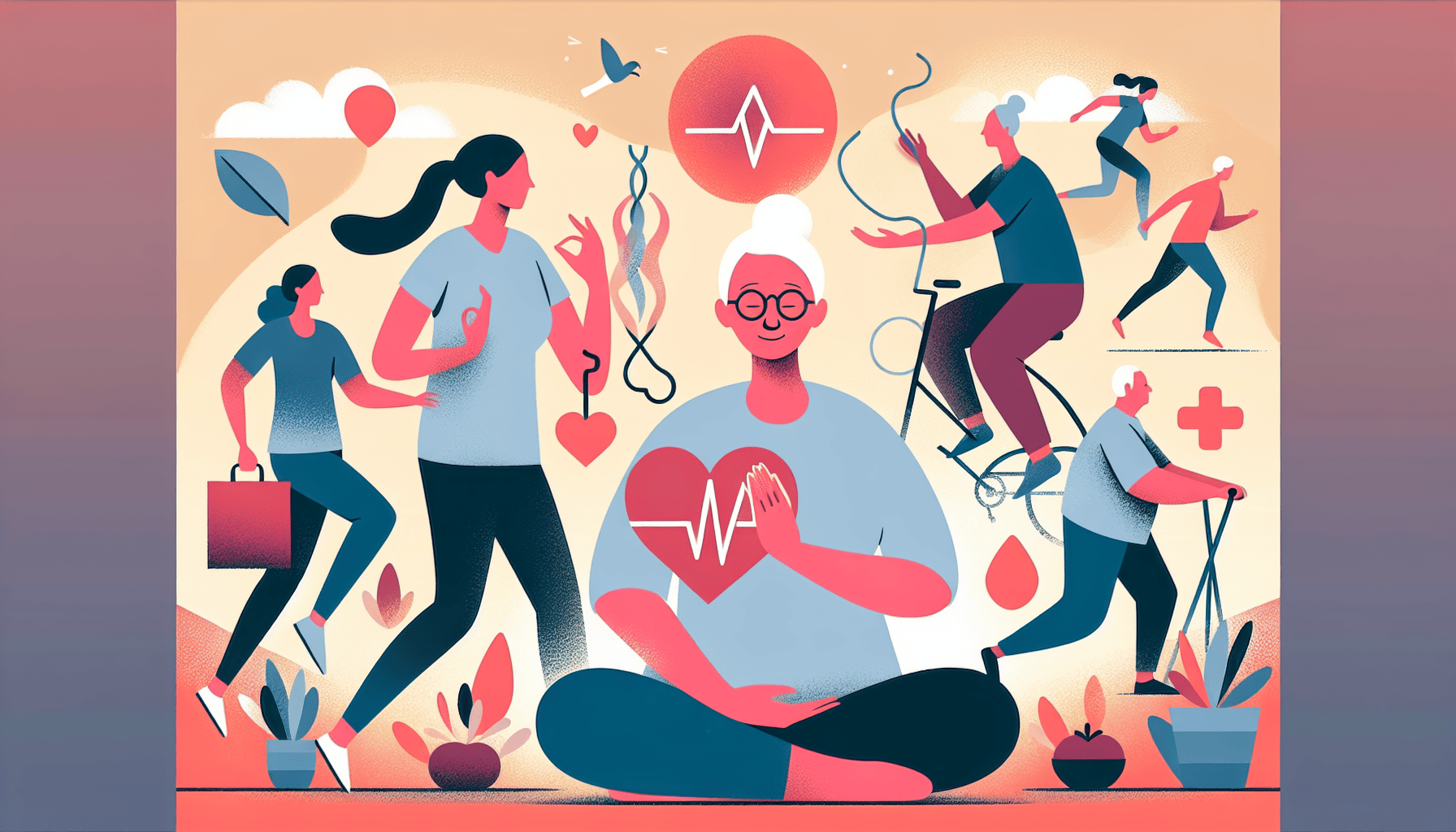As you grow older, your body undergoes various changes that can affect your overall health and well-being. However, you have a lot of control over how you feel as you age. By understanding what's natural and what's not, and by taking simple steps to delay or lessen these changes, you can enjoy a healthier body for years to come.
Keeping Your Heart Healthy
As you age, your blood vessels and arteries become stiffer, making your heart work harder to pump blood. This can lead to high blood pressure and other heart problems. To maintain a healthy heart:
Stay active with moderate exercise each day, such as walking, running, or swimming
Eat a diet rich in fruits, vegetables, and whole grains
Manage stress and get enough sleep (7-8 hours per night)
Caring for Your Skin
Your skin may feel drier and less supple as you age due to decreased natural oil production and sweat. You may also notice wrinkles, age spots, and skin tags. To keep your skin healthy:
Take warm baths and showers instead of hot ones
Wear sunscreen and protective clothing when outdoors
Check your skin regularly for changes, such as moles, and inform your doctor
If you smoke, consider quitting to prevent wrinkles
Maintaining Good Vision and Hearing
As you age, you may find it harder to focus on close objects, adapt to sudden changes in light, or hear high frequencies. To protect your vision and hearing:
Get regular vision and hearing checkups
Wear sunglasses to protect your eyes outdoors
Use earplugs to protect against loud noises
Keeping Your Teeth and Gums Healthy
Your gums may recede, and dry mouth can increase your risk of tooth decay and infections. To maintain good oral health:
Protecting Your Bones and Joints
Your bones may become more brittle, and you might lose some height due to shrinking spinal disks. Joints may feel stiffer, and you could develop arthritis. To keep your bones and joints healthy:
Ensure you get enough calcium and vitamin D through diet or supplements
Good sources of calcium include dairy products, almonds, broccoli, and kale
Vitamin D can be obtained through sunlight exposure, tuna, sardines, egg yolks, and fortified foods like milk and cereals
Managing Bladder and Bowel Changes
You may experience urinary incontinence or constipation as you age. To manage these issues:
See your doctor if you feel the urge to go frequently
Avoid caffeine, alcohol, sodas, and acidic foods
Practice Kegel exercises to strengthen pelvic floor muscles
Eat high-fiber foods, drink plenty of water, and exercise daily to prevent constipation
Staying Strong and Active
As you age, you may lose muscle mass, leading to weakness and reduced activity. To maintain strength and mobility:
Engage in moderate exercise daily, such as brisk walking or light weight lifting
Eat a balanced diet with fruits, vegetables, and lean proteins
Avoid sugar and foods high in saturated fat
Eat smaller portions, as your caloric needs may decrease with age
Adapting to Changes in Your Sex Life
Women may experience vaginal dryness and less elasticity during menopause, while men may have difficulty getting or maintaining an erection. To address these changes:
Although we cannot turn back time, we can make the most of our bodies as we age by being patient, taking care of ourselves, and making smart lifestyle choices. For more information on aging and health, visit National Institute on Aging, Centers for Disease Control and Prevention, and World Health Organization.
The Bottom Line
The most impactful interventions combine strength training to preserve muscle mass, adequate protein intake (1-1.2g per kg body weight), and consistent sun protection starting as early as possible. Regular preventive care helps catch age-related changes before they become problematic. If you're noticing concerning changes in strength, mobility, or overall health, Doctronic can help you understand what's normal aging versus what needs medical attention.



